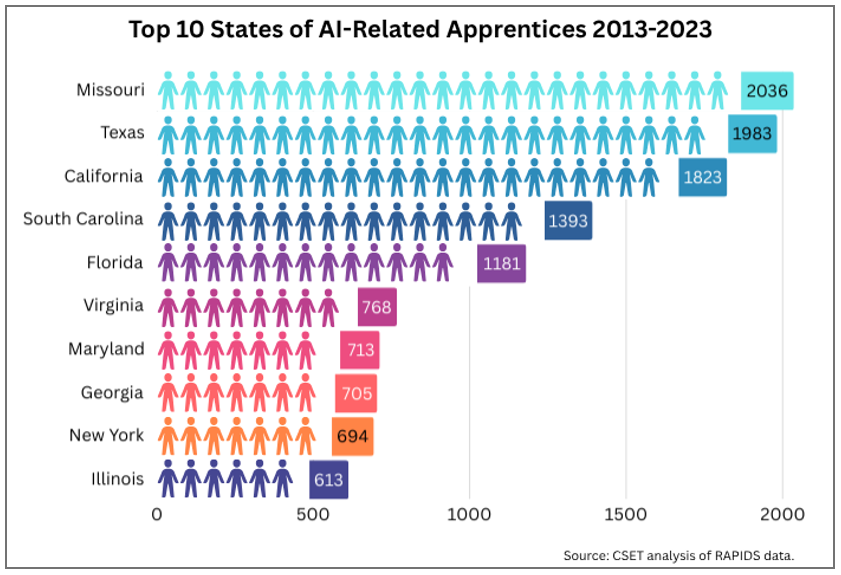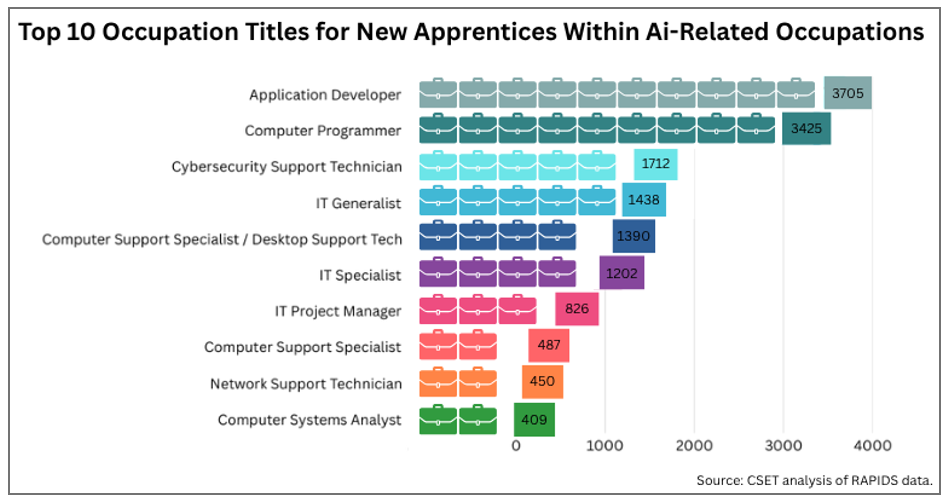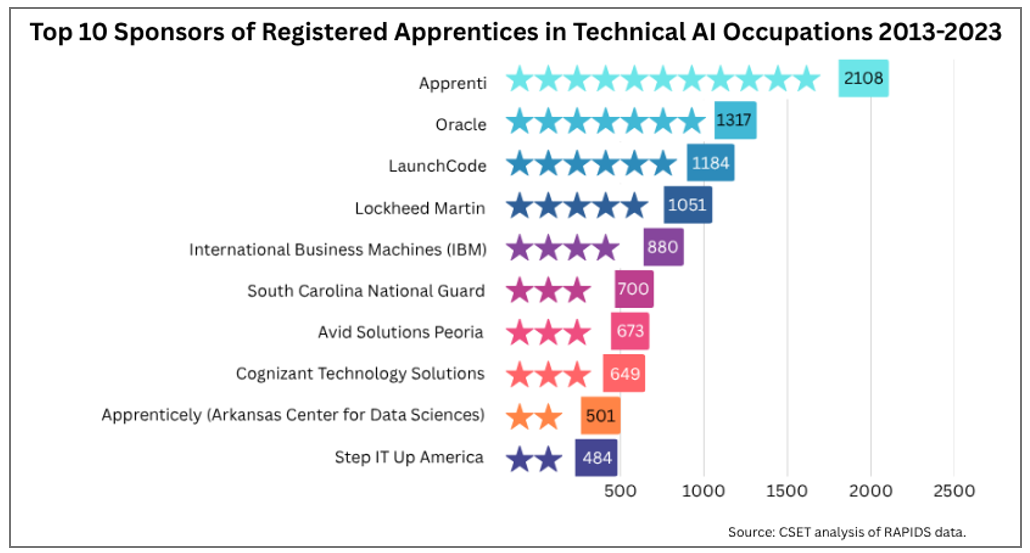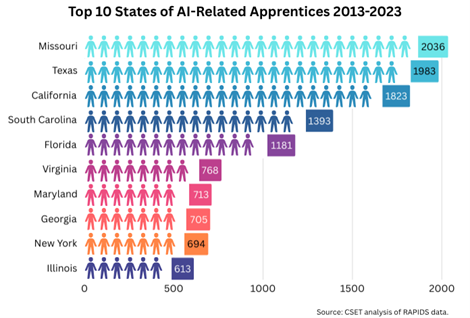Artificial Intelligence (AI) is transforming industries at an unprecedented pace, reshaping the skills needed to thrive in today’s workforce. As demand for AI expertise continues to surge, Registered Apprenticeships (RAs) are stepping in as a powerful solution—bridging the widening skills gap while expanding access to high-quality tech careers.
The Growing Need for AI Training
Across industries, businesses and workers alike recognize the importance of AI skills—but training opportunities remain scarce. While 86% of employees believe AI training is essential, only 14% of frontline workers have received any upskilling in AI. This gap is even more pronounced considering the 2,000% increase in job postings requiring AI expertise, yet just one in ten workers has been offered AI-specific training.
To meet this demand, AI apprenticeships have rapidly expanded:
- Growing at an annual rate of 250%, far outpacing traditional apprenticeship programs.
- Increasing from 155 apprentices in 2013 to over 4,000 in 2023, a clear sign of strong employer adoption.
- Achieving a 68% completion rate, reinforcing the effectiveness of hands-on AI training.

At the same time, companies are adapting to these shifting workforce needs. Nearly two-thirds of HR leaders report that AI has redefined in-demand skills, and more than half believe AI literacy is now essential across all roles. Yet many workers remain hesitant—35% cite a lack of trust in AI, while 27% don’t see its relevance to their current jobs. Addressing these concerns requires both technical instruction and broader workforce education to ensure AI adoption benefits everyone.
Human–AI Collaboration and the Changing Workplace
AI is more than just a set of tools—it’s revolutionizing how work gets done. From speech and image recognition to predictive decision-making and automated content generation, AI is accelerating innovation across industries.
This shift isn’t replacing jobs, it’s reshaping them. AI-powered automation helps eliminate repetitive tasks, allowing employees to focus on strategy, creativity, and leadership. As AI systems integrate into daily operations, demand is rising for professionals who not only understand AI technology but can also manage and collaborate with it effectively.
Apprenticeships: A Scalable Solution for AI Training
To prepare the workforce for AI-driven roles, apprenticeships provide a hands-on, structured learning experience that combines classroom instruction with paid, on-the-job training. Unlike traditional degree programs, apprenticeships offer an accessible and direct route into tech careers, making them an ideal model for workforce development.

The Apprenticeship Advantage in AI
Apprenticeships are instrumental in closing critical workforce gaps, offering structured, debt-free career training that catalyzes economic mobility by providing an entry point for workers with nontraditional educational backgrounds into AI-driven roles. This powerful model also enables individuals to access good-paying jobs and careers in high-demand AI-integrated industries. The apprenticeship model facilitates rapid skill acquisition through a combination of paid on-the-job training, technical instruction, and mentorship. For employers, apprenticeships yield a high return on investment, enabling them to effectively re-skill their current workforce and bridge existing AI skills deficits. Furthermore, these programs foster the development of essential human skills like critical thinking, problem-solving, effective collaboration, and empathy, ensuring a well-rounded workforce ready for the evolving demands of AI.

Harnessing the Potential
Registered Apprenticeships are proving to be more than just a training model—they are a strategic approach to building an AI-ready workforce. For employers, apprenticeships offer a proactive way to stay ahead of evolving demands. For workers, they provide the skills, confidence, and experience needed to thrive in an AI-powered economy.
As AI continues to shape the future of work, apprenticeships will play a critical role—ensuring industries harness AI’s full potential while driving both innovation and inclusion in the workforce of tomorrow.






